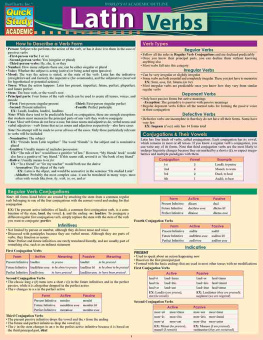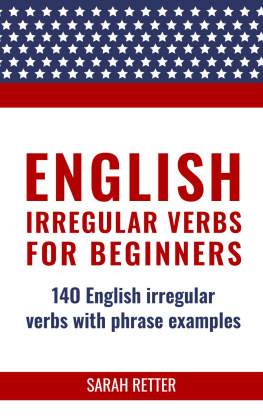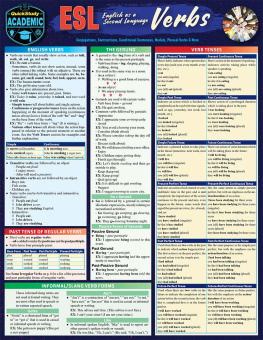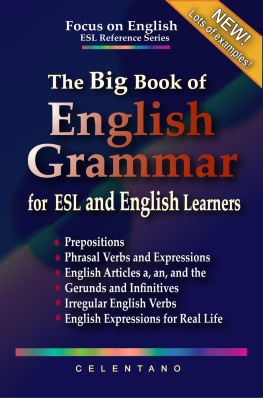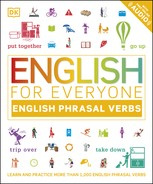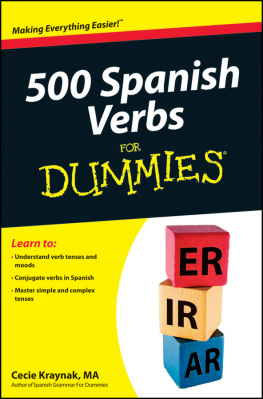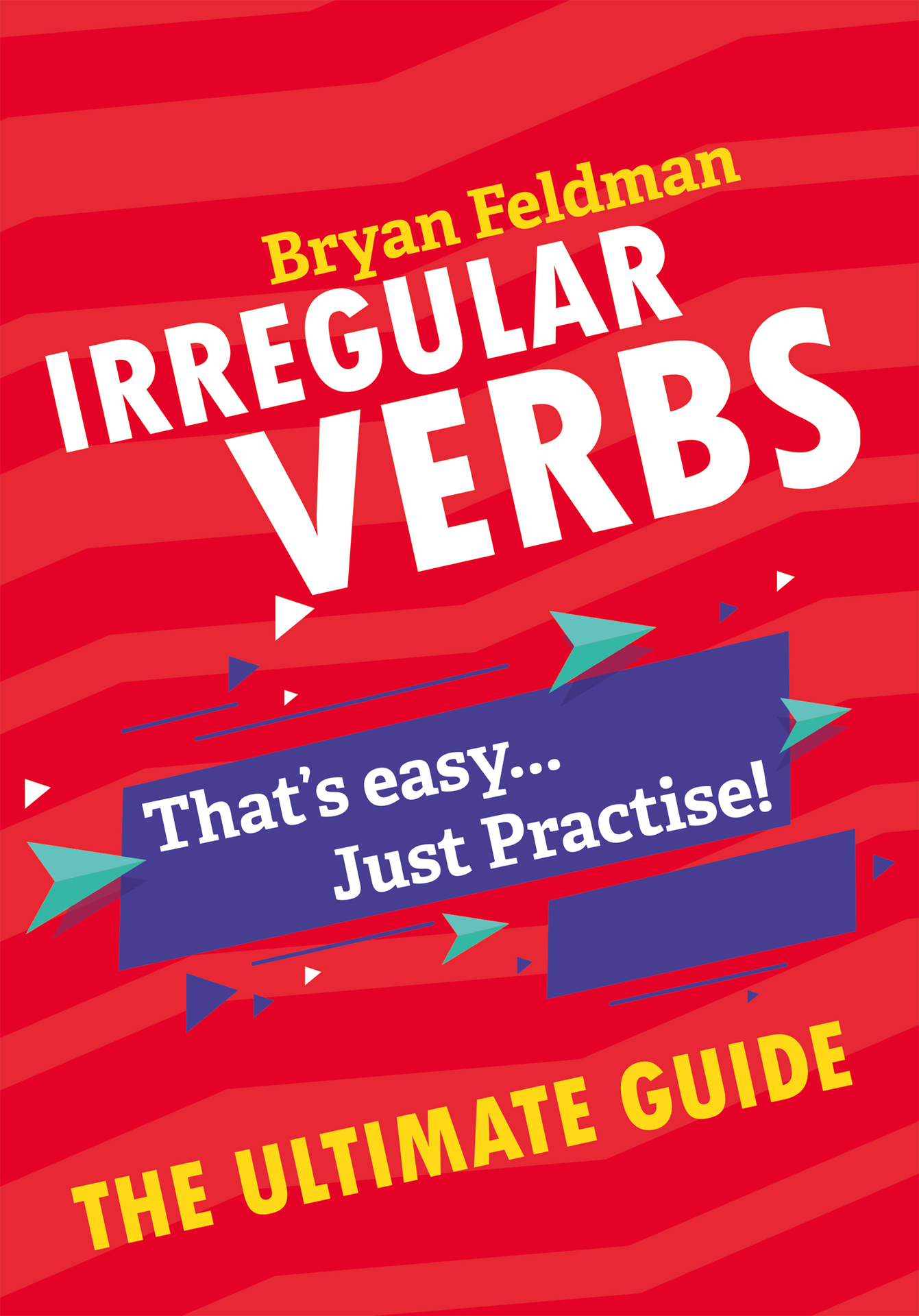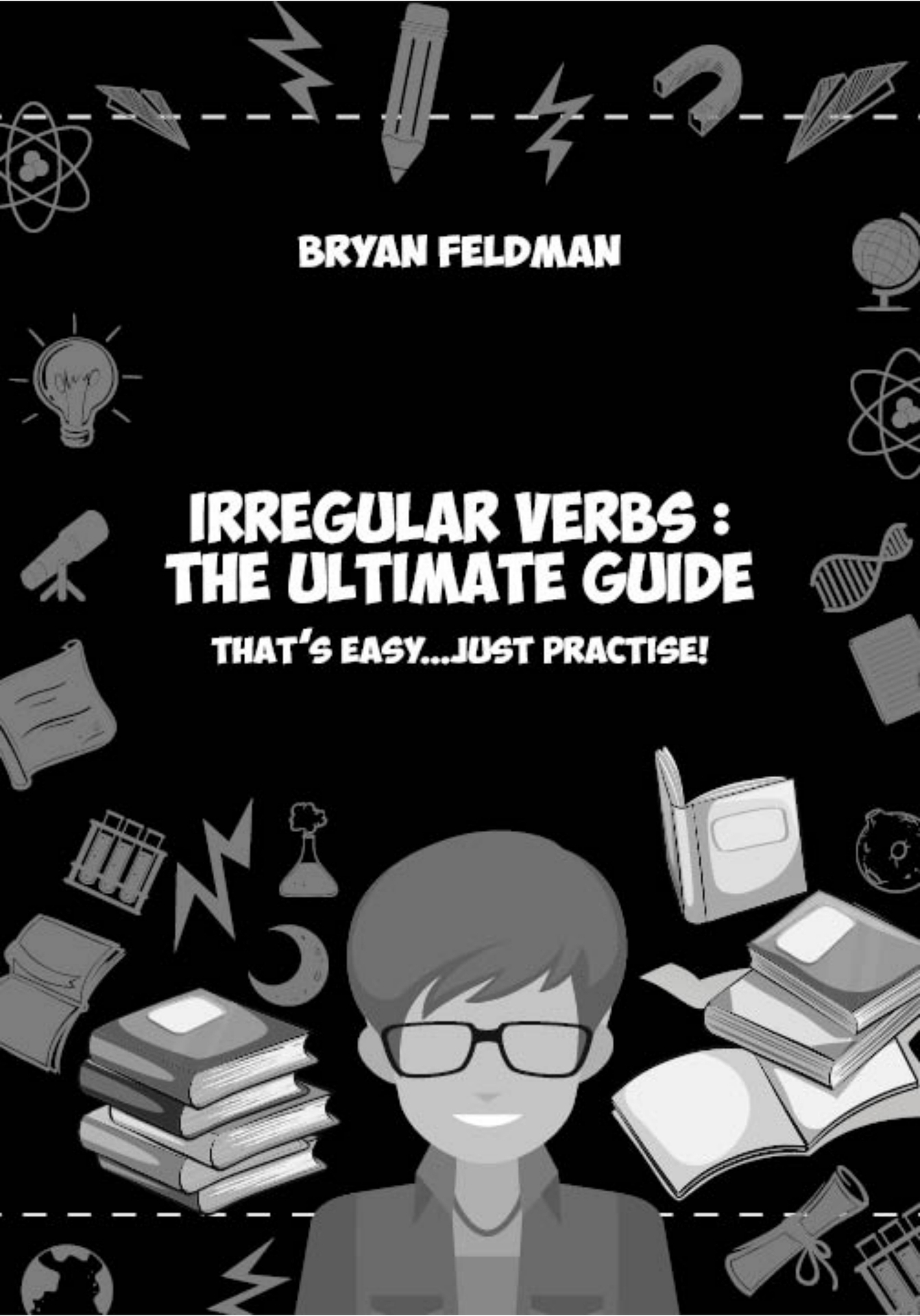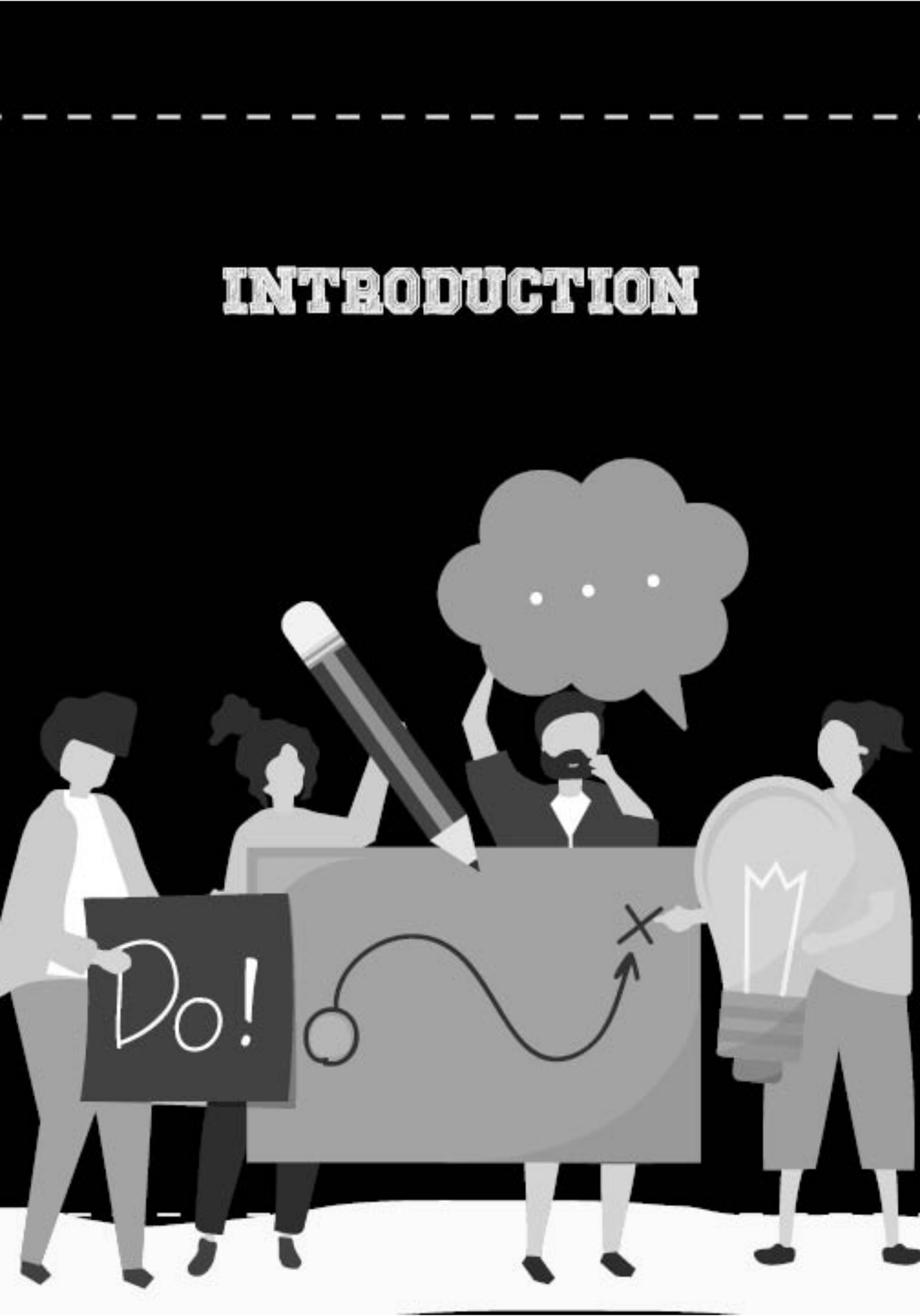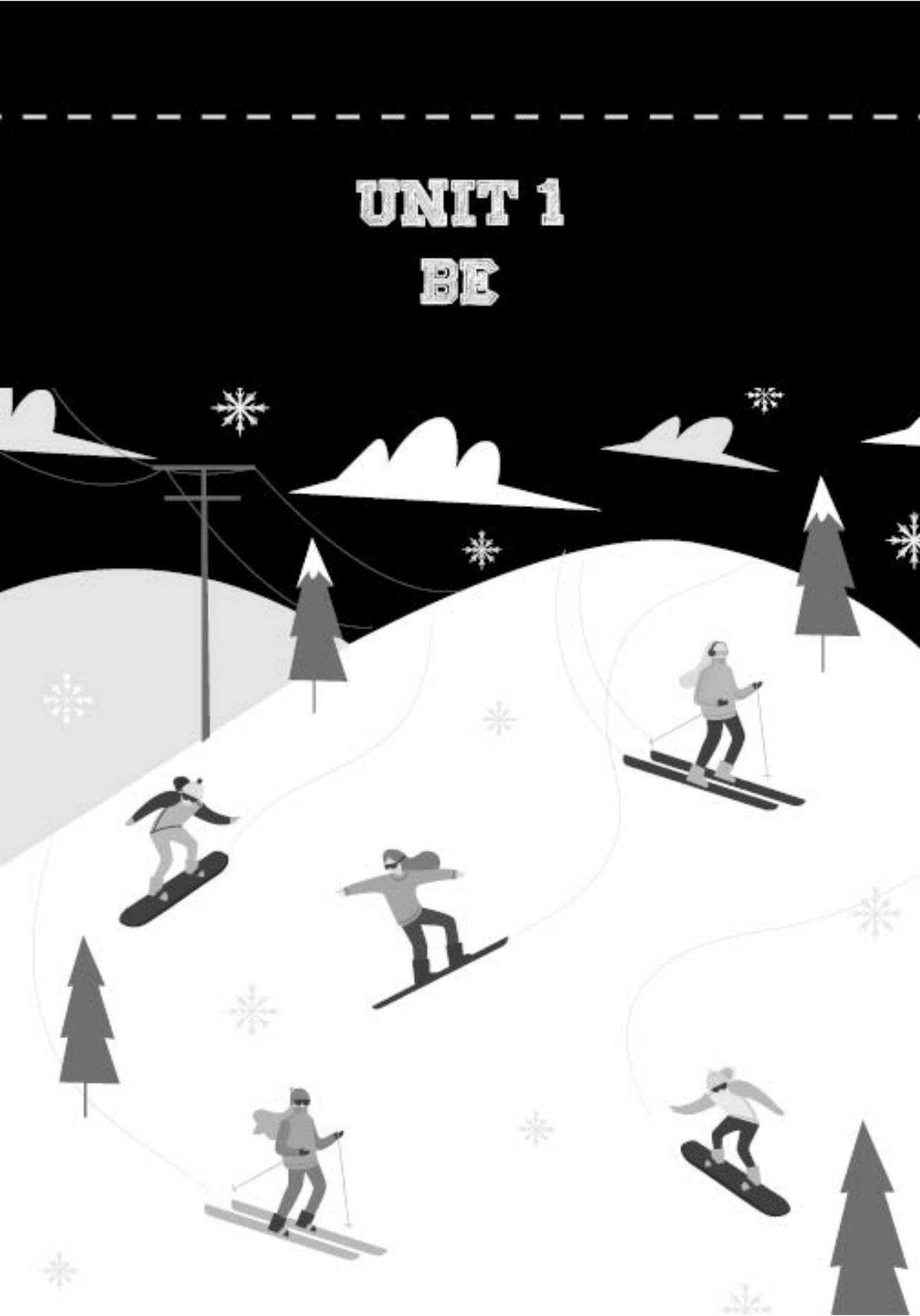Copyright Bryan Feldman 2019
Irregular Verbs: The Ultimate Guide
All rights reserved. No portion of this book may be reproduced, stored in a retrieval system, or transmitted in any form or by any meanseletronic, mechanical, photocopy, recording, scanning, or otherexcept for brief quotations in critical reviews or articles, without the prior written permission of the author.
Cover and Interior Design By:
SGuerra Design
Drawings:
Freepik.com
Flaticon.com
www.facebook.com/irregularverbsguide
INTRODUCTION
Irregular Verbs: The Ultimate Guide is for students of English who need to learn and practise the most commonly used irregular verbs. It was written as a self-study material, but teachers will find it suitable for use in class. Both students and teachers of English will also find the book useful for revision and consolidation.
The irregular verbs are arranged in alphabetical order and there are 18 units in the book. All irregular verbs approached are classified as very frequent words in the sixth edition of the renowned Longman Dictionary of Contemporary English . The first unit focuses exclusively on the verb to be . Because of its uncommon conjugation, it was approached separately. Each following unit consists of a group of five verbs. The Pay Attention section presents five example sentences in the past simple tense and five example sentences in the present perfect simple tense. The Practice Makes Perfect section brings exercises about such verb tenses. Its worth mentioning that the past participle forms are used to make the perfect tenses and all the passive forms. The Additional Exercises section (pages 197-205) provides more activities to practise the past simple and past participle forms of the main irregular verbs in English. Students may check their answers by looking at the Key to Exercises at the back of the book.
Irregular verbs play a vital role in the English language. They make up only 3.6% of the verbs, but they outnumber the frequency of regular verbs in spoken and written English. Its also important to point out that the ten most commonly used verbs in English are irregular. The list includes be , come , do , have , get , go , know , make , see and take . The mastery of irregular verbs is crucial for those students who intend to achieve a high level of proficiency in English.
Remember! Regular verbs end with -ed in the past simple and past participle forms. Ask becomes asked , paint becomes painted , love becomes loved , talk becomes talked , etc. However the past simple and past participle of irregular verbs dont follow the -ed pattern:
BUY | BRING | CUT | GO | TAKE |
BOUGHT | BROUGHT | CUT | WENT | TOOK |
BOUGHT | BROUGHT | CUT | GONE | TAKEN |
Past Simple Tense
MAIN IDEA : Completed actions and events in the past time.
FORM : Regular Verbs = Verb + -ed / Irregular Verbs = Verb + Irregular Verb Forms.
We use the past simple tense:
to talk about events in the past that are now finished.
It was hot, so I opened the windows and took off my coat.
Alexander joined the company in 1992.
to talk about habits in the past.
He often went to night clubs at weekends when he was young.
to talk about situations in the past.
She hated mathematics when she was at the primary school.
in reported speech.
They said they would protest against the decision.
PAST SIMPLE KEY WORDS
Yesterday/ yesterday morning,
last Sunday/ last week/last month,
on Monday/on Thursday,
in January/ in March/in June,
a few minutes ago/ some days ago/two months ago,
from 1888 to 1897, from 1957 to 1971/from 1997 to 2009,
in 1504/ in 1722/ in 1912/ in 2003,
at 5 oclock, at 9.45, etc.
Present Perfect Simple Tense
MAIN IDEA : Connects the past with the present.
FORM : Have / Has + Past Participle.
We use the Present Perfect Simple:
when we are describing situations that have continued from some time in the past until now.
Derek has lived in Bangkok for seven years.
when we are describing recent events.
She has just drunk two cups of tea.
when we are describing repeated actions that have continued from some time in the past until now.
They have been to many different countries since they started dating each other.
to talk about experience, that is, things that have happened at some time in our lives.
Ive been to Berlin three times.
Have you ever been sailing?
when we can see a present result of past actions.
Piers has forgot the map at home and now they are completely lost.
when we talk about our first, second, etc. experience of something.
Thats the first time Nancy has tried mountain climbing.
when we use the superlative.
Gina is the prettiest woman Ive ever seen.
PRESENT PERFECT SIMPLE KEY WORDS
Just, already, yet, still, ever, never, for three days/ for two months/ for five years/
since Wednesday/ since 11 oclock/ since 1997/ since she was a teenager/
so far, recently, lately
How long...+ Present Perfect Simple (How long have they been here?)
Once/twice/ three times,
This week, this month, etc.
NOTE
The following verbs can be regular or irregular and were not included in the book:
burn / burned or burnt
dream / dreamed or dreamt
learn / learned or learnt
smell / smelled or smelt
1. BE WAS/WERE BEEN
PAY ATTENTION! |
Read carefully the following sentences in the past simple. |
It was your great chance to win the game.
The accident wasnt near downtown.
Those machines werent broken two days ago.
Was she sick last week?
My parents were in New Zealand in 1996.
PAY ATTENTION! |
Read carefully the following sentences in the present perfect simple. |
We have been to Spain twice.
How long have you been here?
I have been too busy since I started working as a salesperson.
It hasnt been cold in some parts of the country.
My colleagues havent been very helpful.
PRACTICE MAKES PERFECT
1.1 Complete the sentences using the past simple of the verb To Be .
She ________________ angry yesterday.
The floor ________________ dirty.


